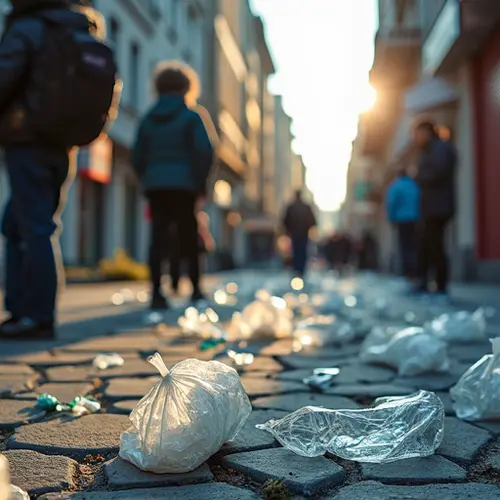
The Global Push to Ban Single-Use Plastics by 2030
In a landmark move to combat plastic pollution, nations worldwide are rallying to ban single-use plastics by 2030. This initiative, driven by growing environmental concerns, aims to reduce the devastating impact of plastic waste on ecosystems and human health.
International Efforts and Legislation
The European Union has been at the forefront of this movement, implementing stringent measures under its Directive on single-use plastics. The directive targets the top 10 single-use plastic items found on European beaches, including cutlery, plates, straws, and food containers. By 2025, the EU aims to achieve a 77% separate collection rate for plastic bottles, escalating to 90% by 2029.
Beyond Europe, countries like Canada and India have also introduced bans on single-use plastics. Canada’s ban, effective from 2025, prohibits the manufacture and import of harmful single-use plastics, while India’s nationwide ban targets items like plastic bags and straws.
The Environmental Impact
Single-use plastics account for nearly 50% of global plastic waste, with much of it ending up in oceans, harming marine life and entering the food chain. The European Commission highlights that these plastics are more likely to pollute marine environments than reusable alternatives.
Challenges and Alternatives
While the push to ban single-use plastics is gaining momentum, challenges remain. Industries reliant on plastic packaging are exploring biodegradable and compostable alternatives. However, these solutions often come with higher costs and require infrastructure for proper disposal.
Public awareness campaigns are also critical. Governments and NGOs are educating consumers about sustainable practices, such as using reusable bags and containers, to foster a cultural shift away from disposable plastics.
The Road Ahead
The global ban on single-use plastics by 2030 represents a significant step toward a circular economy. However, its success hinges on international cooperation, innovation in materials science, and widespread public participation.

 Nederlands
Nederlands
 English
English
 French
French
 Deutsch
Deutsch
 Espaniol
Espaniol
 Portugese
Portugese









